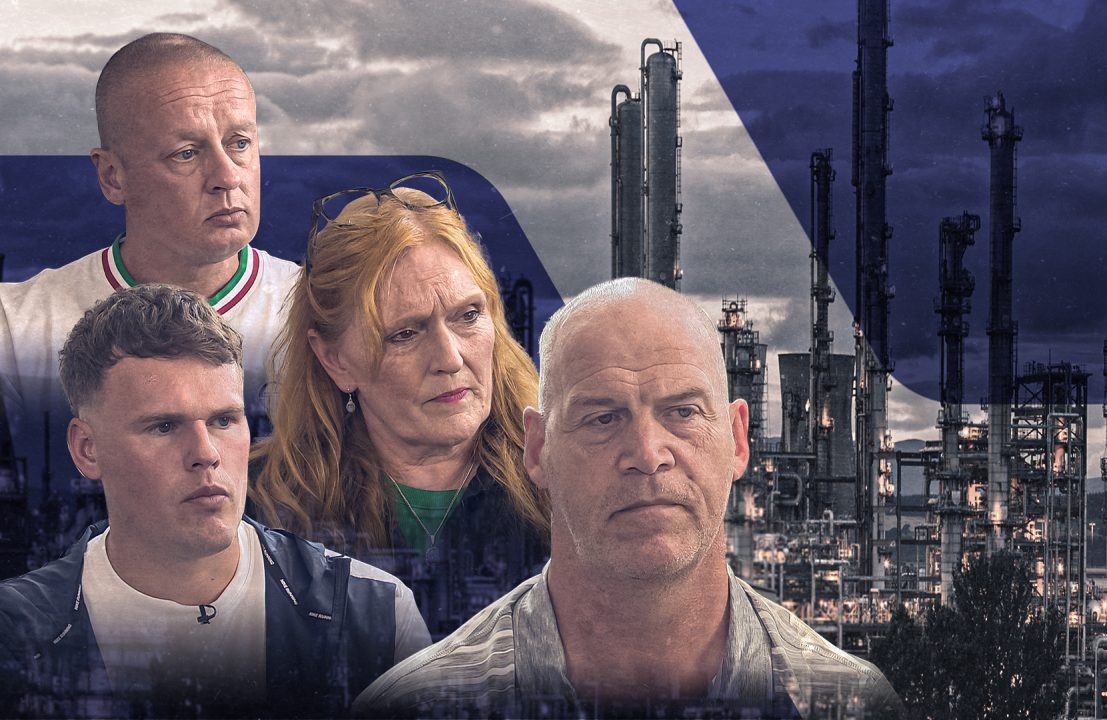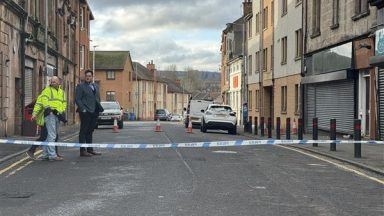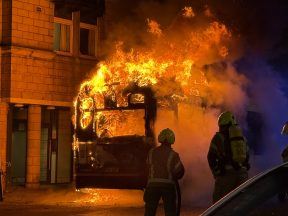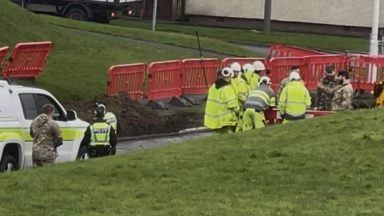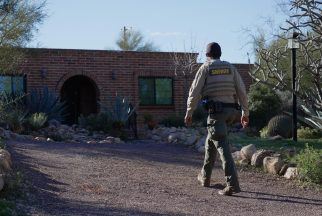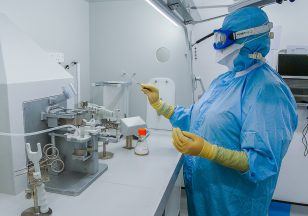Scotland’s last oil refinery halted production in April, resulting in the direct loss of more than 400 jobs and many others in the supply chain.
The Grangemouth site in Falkirk has been in operation for a century, but will now move towards becoming an import hub for finished fuels.
Hundreds of staff have already left through voluntary redundancy, with compulsory job cuts also taking place.
STV News has been speaking to some of those affected, hearing about their concerns for the future in an area where economic prospects are bleak.
Tony Jinks: ‘The thought of having to start all over again at 50 has been quite scary’
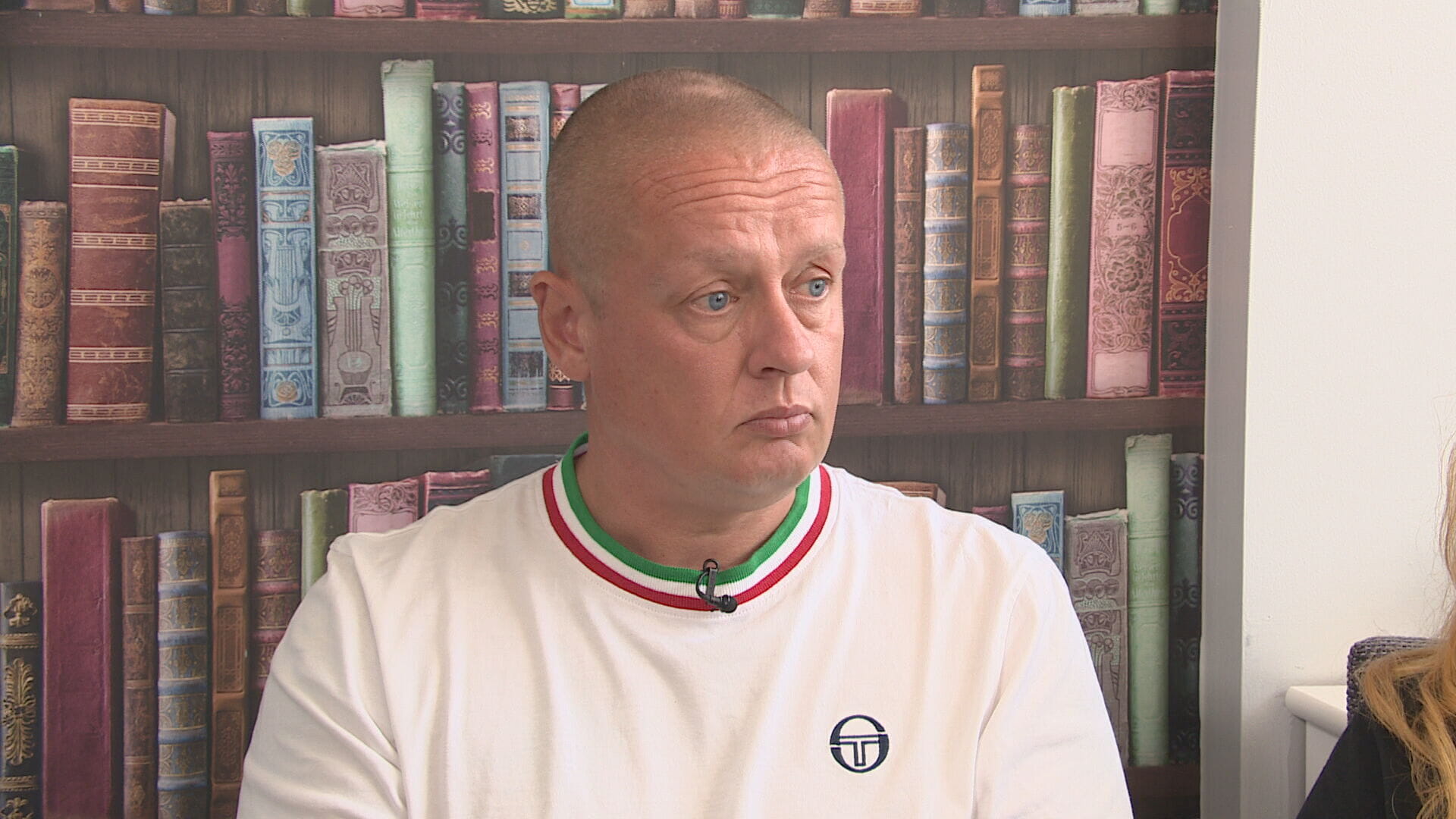 STV News
STV NewsTony worked in the refinery for almost 20 years and was made redundant at the end of April.
“The way it (news of the refinery closing) was delivered, I don’t think anybody was left in any doubt it was going to happen this time. Everybody was summoned, and it was rolled out by senior managers. We knew then there would be no coming back from it.
“The thought of having to start all over again at 50 has been quite a scary thought. My next job is probably going to be outwith the area.
“I’ve recently retrained and passed my HGV licence, looking to take some of the skills that I had at the refinery and move into the tanker, driving, and delivering fuel. But again it’s all new, I’m having to go into a new sector and start from the bottom and work my way up.
“I know quite a few colleagues who have moved abroad, to the Middle East. Some of them have taken their families out, so you’re losing a skilled workforce, and once you lose those skills and they’re not coming back through, it condemns future generations, as you’re basically deindustrialising the area.
“Politicians speak about a ‘Just Transition’, but it’s been an unjust transition for the workforce at Grangemouth. This could have been planned, it could have happened over a period of time. But to just close it and start looking for companies to come in and fill the void, you lose that skill base, and how do you get it back?”
Ruth Swan: ‘We just seem to be collateral damage’
 STV News
STV NewsRuth works in the laboratories and chemicals business on site, but will be leaving her role at the end of September.
“We heard the announcement from the refinery, and we knew there would be an impact on the shared services in the chemicals side of the business, because obviously, we provide a lot of support and service to the refinery.
“It was a little bit more delayed because obviously they had to wait until the refinery decided what they did and didn’t need, so we had that hanging over us for quite some time.
“Once the final announcement came about the closure, it then had a knock-on effect to the different areas within our own business. We knew there was going to be an impact, we just maybe didn’t fully appreciate how big an impact.
“But obviously, from a company side, from the business side, they were really reliant on what information they were getting from the refinery. But from the government side, I feel we have been forgotten about, quite frankly, because the focus was on the refinery, and we just seem to be collateral damage.
“I’m in a different position in that I can retire, but a lot of people in the lab aren’t of that age and can’t just leave like that. Finding another job is quite difficult, and obviously, not every laboratory job is exactly the same.
“People will either need to leave the area or go to a far lesser paid job – and that’s if they can be retrained to do that particular type of analytical work.
“There’s also a knock-on effect with other people on the site – contractors and the supply chain and everything else. It’s a far-bigger picture.”
Jordan McGregor: ‘It’s been quite a hard few months’
 STV News
STV NewsJordan joined Petroineos three years ago on the conversion course and was made redundant in April
“When I got the job, I thought I had a job whereby I would be here for 20-30 years. Being from Grangemouth as well, it was somewhere I had always wanted to work.
“I was just in the door, so I was a bit more naive when I heard the rumours about the refinery shutting down. I personally didn’t believe it was going to happen, so when the UK Government said it was going to save jobs, I believed them.
“It was just stressful (going to work after the announcement) because I had to keep looking for other jobs. We were given grants to study and better ourselves, but we had to decide whether to study or look for jobs.
“When you’re that stressed, however, your head isn’t in it to study and do your other courses. It’s been quite a hard few months for me, it’s just a shame that it’s closed down.
“My future could possibly be away from Grangemouth because other companies are shutting down, especially in Scotland. It seems like it’s one company shutting down after another. It’s hard because I’ve stayed in Grangemouth all my days, and when I got the job, I thought, ‘this is me, I’m secure for life, I’ve got a job until I retire’.
“But now I’m in a situation where I don’t know what the future is like for Grangemouth now. I’ve got family and friends who work on the other side of the road, so they’re obviously worried about what’s going to happen to them.
“The worst thing for me is that I came out of full-time football at 21, so I came out not knowing where my career was going to go and then I got a job as a contractor, so I had constant work but sometimes you didn’t know if you were going to be working from the next week to the other.”
Ricky Forrest: ‘It’s a dying trade’
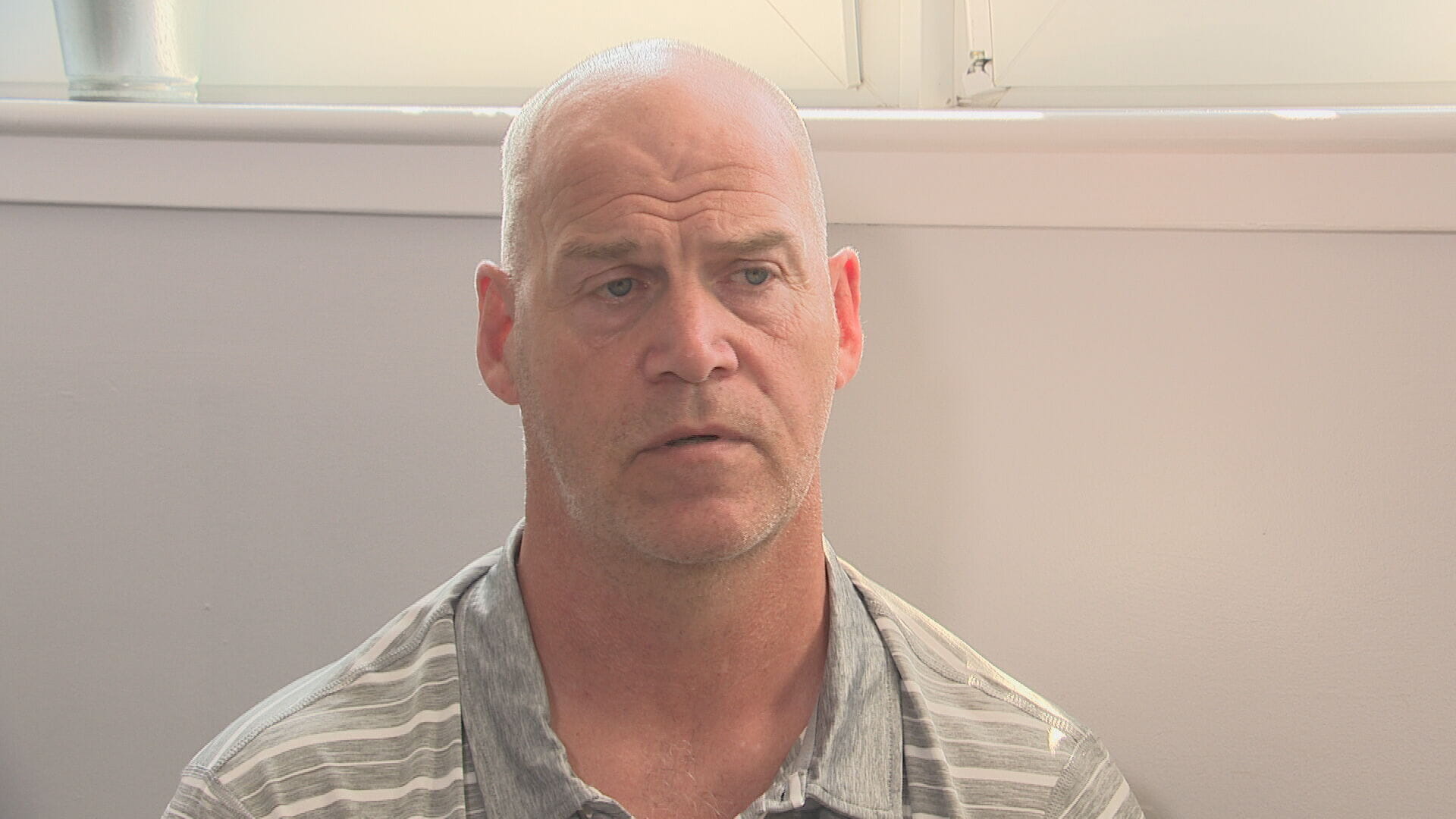 STV News
STV NewsRicky worked for Ballantine Castings in Bo’ness for 46 years and was made redundant two weeks ago
“We’re not part of the supply chain for Ineos, but it was a shock the way they did it. Everybody was on holiday, it was a complete shutdown, and we all got letters – the first week of our Friday holiday – saying the company is in liquidation.
“We actually thought we might get some of the tradesmen from Ineos. Now we’ve shut down, they’ve shut down, there are no jobs left.
“For me, I’m 62, so I’ve not got that much longer left to work. It’s all the younger people with families, mortgages to pay, it’s a bad situation.
“Everyone used to call it (the refinery) BP, and we never thought it would shut down; it was just like the mining industry, it was exactly the same. But it got hunted down til it doesn’t exist, and the foundries are exactly the same – it’s a dying trade.
“There’s not many left, not many left at all.”
What is government saying?
Energy secretary Gillian Martin said: “The Scottish Government is committed to securing a long-term and sustainable future for the Grangemouth industrial cluster.
“Since the decision by Petroineos to cease refining at Grangemouth, we have been focused on supporting businesses to bring forward new investable propositions such as those identified in Project Willow, which are supported by our £25m Just Transition fund.
“We have also been supporting former Petroineos employees directly impacted by the closure via the Forth Valley College led skills intervention to re-train employees so that they can move on to new employment opportunities, including within adjacent low carbon sectors, with more than 300 workers supported to date.”
A UK government spokesperson said: “We know this has been an incredibly difficult time for workers and their families.
“When we came to power, there was no overall plan for the future of the Grangemouth refinery and within weeks we delivered an unprecedented support package.
“The National Wealth Fund is investing £200m and we are working closely with investors to advance sustainable, long-term proposals for the site.”
Insight Gordon Chree
I’ve been coming to Grangemouth for more than 20 years, covering numerous stories related to the oil refinery and the wider petrochemicals site.
That’s included industrial disputes and – at times – threats of closure.
But this time it is different – the oil refinery really has stopped production with the loss of four hundred and thirty jobs.
And the sense of frustration among those facing an uncertain future is boiling over.
They feel let down.
That’s why they’re sending this open letter to the Prime Minister.
And they’re unhappy with the Scottish Government too.
There’s a feeling the politicians simply don’t get it – despite their warm words about the importance of securing jobs.
The disillusionment is rooted in the fact ministers both at Holyrood and Westminster are focused on the longer term while for people out of work the crisis is in the here and now.
They’re concerned too that skilled workers may have no option but to move away from the area to earn a living and that would hollow out the workforce in the area – ultimately making it a less attractive place for investment in the future.
We’re told there are numerous potential investors in discussions with governments – but that will have to lead to something concrete soon if people in Grangemouth are to be placated.
Follow STV News on WhatsApp
Scan the QR code on your mobile device for all the latest news from around the country


